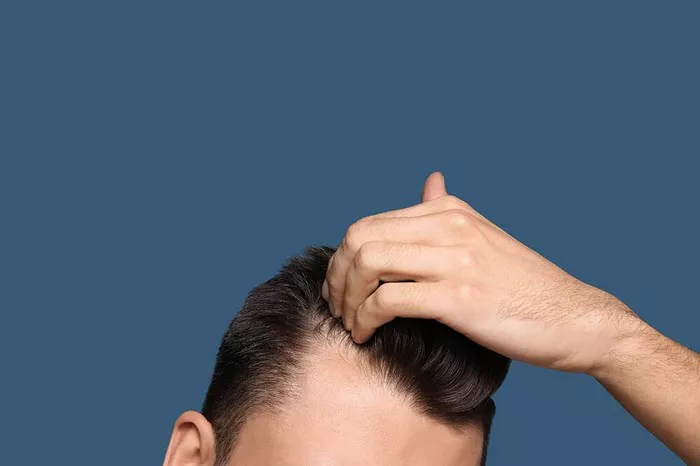Hair transplant surgery has become increasingly popular over the years as a solution for those experiencing hair loss or thinning. However, a common question among individuals considering this procedure is whether the transplanted hair will grow naturally. Understanding the process of hair transplantation and the factors influencing hair growth post-surgery can provide valuable insights into this inquiry.
Understanding Hair Transplantation
Hair transplantation is a surgical procedure designed to address hair loss by relocating hair follicles from one area of the scalp, typically referred to as the donor site, to another area experiencing hair thinning or balding, known as the recipient site. There are two primary techniques used in hair transplantation: follicular unit transplantation (FUT) and follicular unit extraction (FUE).
In FUT, a strip of tissue containing hair follicles is surgically removed from the donor area, typically the back or sides of the scalp, and dissected into individual follicular units for transplantation. FUE, on the other hand, involves the extraction of individual follicular units directly from the donor area using a specialized punch tool.
Once the follicular units are harvested, they are carefully implanted into tiny incisions made in the recipient site, following the natural hair growth pattern to achieve a natural-looking result. The success of a hair transplant largely depends on the skill and expertise of the surgeon, as well as the quality and viability of the transplanted follicles.
The Growth Cycle of Hair
To understand whether transplanted hair grows naturally, it is essential to comprehend the growth cycle of hair. Hair growth occurs in three main phases:
1. Anagen Phase: This is the active growth phase during which hair follicles produce new hair. The duration of the anagen phase varies among individuals and can last anywhere from two to seven years.
2. Catagen Phase: Following the anagen phase, hair enters a transitional phase known as catagen. In this stage, hair growth ceases, and the hair follicle shrinks.
3. Telogen Phase: The final phase of the hair growth cycle is telogen, also known as the resting phase. During this period, hair remains in the follicle but is not actively growing. Eventually, the old hair is shed, and the cycle repeats.
Post-Transplant Hair Growth
After undergoing a hair transplant procedure, patients often experience a temporary shedding of the transplanted hair within the first few weeks. This phenomenon, known as shock loss, occurs as a response to the trauma of surgery and is a natural part of the healing process. While this shedding may cause concern, it is essential to recognize that it is temporary, and new hair growth will typically begin within a few months.
The timeline for visible hair growth varies from person to person, but most patients start to see noticeable results around three to six months post-surgery. However, it’s essential to understand that the transplanted hair will initially grow fine and gradually thicken over time. Full results may not be apparent until 12 to 18 months after the procedure.
The growth pattern of transplanted hair closely mimics that of natural hair. As the transplanted follicles enter the anagen phase and begin actively growing hair, they follow the same cycle of growth, shedding, and regrowth as the surrounding native hair. Over time, the transplanted hair integrates seamlessly with the existing hair, resulting in a natural and undetectable outcome.
Factors Influencing Hair Growth After Transplant
Several factors can influence the growth of transplanted hair and the overall success of a hair transplant procedure:
1. Patient Factors: Individual characteristics such as age, genetics, overall health, and lifestyle can impact the outcome of a hair transplant. Younger patients with healthy donor hair and realistic expectations tend to achieve the best results.
2. Technique and Surgeon Skill: The proficiency of the surgeon and the technique used during the procedure significantly affect the growth and aesthetic outcome of the transplant. Choosing a board-certified and experienced surgeon with a track record of successful outcomes is paramount.
3. Post-Operative Care: Following proper post-operative care instructions provided by the surgeon is crucial for optimizing hair growth and minimizing complications. This may include avoiding strenuous activities, protecting the scalp from sun exposure, and adhering to a prescribed medication regimen.
4. Quality of Donor Hair: The density, texture, and overall quality of the donor hair play a significant role in determining the final outcome of the transplant. Healthy donor hair with robust follicles is more likely to yield satisfactory results.
5. Medical Conditions and Medications: Certain medical conditions such as alopecia areata or autoimmune disorders may affect the success of a hair transplant. Additionally, medications such as blood thinners or immunosuppressants can impact the healing process and hair growth.
Conclusion
In conclusion, hair transplant surgery offers an effective solution for addressing hair loss and thinning, with transplanted hair typically growing naturally over time. By understanding the growth cycle of hair, the process of hair transplantation, and the factors influencing post-transplant hair growth, individuals can make informed decisions about pursuing this procedure.
While the initial phases of recovery may involve temporary shedding and gradual hair growth, patients can expect to see significant improvements in hair density and coverage within the first year following surgery. With proper pre-operative evaluation, meticulous surgical technique, and diligent post-operative care, patients can achieve natural-looking results that enhance their appearance and restore their confidence.


